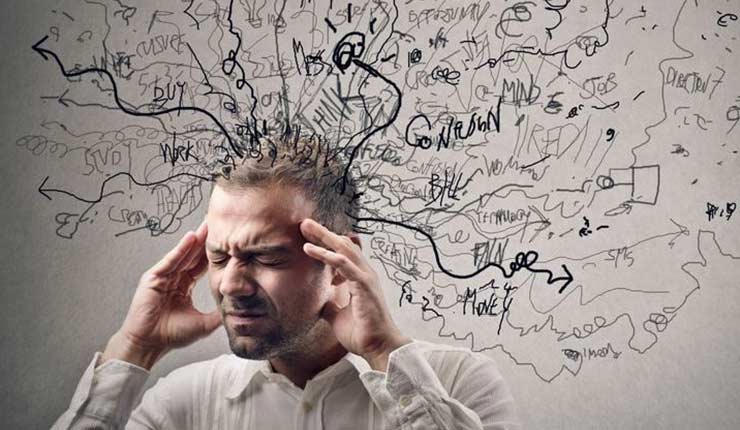
10 Little-Known Early Signs of Thyroid Disease

The thyroid hormone is a butterfly-shaped largest endocrine gland present in our body which plays a major role in energy, metabolism, growth, and the development of the human body.
Thyroid disorders are common. In fact, about 12% of people will experience abnormal thyroid function at some point during their lives.
In the U.S., over 27 million people have some sort of thyroid disease. Women are eight times more likely to develop a thyroid disorder than men. The problem is that around 60% of us aren’t aware that we have thyroid issues. Also, thyroid problems increase with age and may affect adults differently than children.
Thyroid disease is caused due to many factors including environmental chemicals that cause the thyroid to block its production of crucial hormones that are vital to every cell of the body. These chemicals affect our metabolism and our energy levels. Increasing pollution of our air, food and water has contributed to this autoimmune disease.
Problems in the body can occur when this hormone’s levels are too high or low.
Hypothyroidism, or low levels of thyroid hormone, slows your metabolism and decreases the growth or repair of many parts of the body. Hyperthyroidism or overactive thyroid can be caused by a condition known as Graves’ disease, inflammation of the thyroid gland (known as thyroiditis), or by tumors that secrete thyroid hormones.
Here are early signs that your thyroid is not functioning properly:
1. Fatigue and weakness

Both hypothyroidism and hyperthyroidism can result in a dramatic loss of energy. Thyroid hormone controls energy balance and can influence whether you feel ready to go or ready to sleep. Thyroid hormone receives signals from the brain and coordinates cells to change their functions, depending on what else is going on in your body. Those with high levels of thyroid hormone feel nervous and jittery. In contrast, people with low thyroid feel exhausted and sluggish. Low levels of thyroid hormone slow down your metabolism and can cause painful muscle breakdown.
2. Intolerance to cold

Low levels of thyroid hormone cause you to feel colder than others around you. In cases of hypothyroidism, your basal metabolic rate decreases, reducing the amount of heat you generate. In addition, thyroid hormone turns up the thermostat on brown fat, which is a specialized type of fat that generates heat. Brown fat is important in maintaining body heat in cold climates, but hypothyroidism prevents it from doing its job. The majority of low-thyroid people feel more sensitive to cold than usual.
3. Poor digestion

Hyperthyroidism speeds up everything — including bowel movements — so you are constantly running to the restroom as your digestion goes into overdrive.
On the other hand, hypothyroidism can cause slow digestion and constipation.
According to one study, constipation affects 17% of people with low thyroid hormone, compared to 10% of people with normal thyroid levels. Low thyroid levels put the brakes on your colon. If your constipation is accompanied by other signs of hypothyroidism, your thyroid may be the cause.
4. Weight gain or difficulty losing weight

Unexpected weight gain is a common symptom of hypothyroidism. Hypothyroidism signals the body to eat more, store calories and burn fewer calories. This combination leads to weight gain. When thyroid levels are low, metabolism switches modes. Instead of burning calories for growth and activity, the amount of energy you use at rest, or your basal metabolic rate, decreases. As a result, your body tends to store more calories from the diet as fat. Because of this, low thyroid hormone levels can cause weight gain, even if the number of calories eaten remains constant.
On the other hand, an overactive thyroid can cause significant weight loss because it revs up your metabolism.
5. Itchy rough and dry skin

Studies have shown that 50% of people with hypothyroidism reported that their skin had gotten worse over the past year.
Similar to hair follicles, skin cells are characterized by rapid turnover. Therefore, they are also sensitive to losing growth signals from the thyroid hormone. When the normal cycle of skin renewal is broken, skin may take longer to regrow.
This means the outer layer of skin has been around longer, accumulating damage. It also means that dead skin may take longer to shed, leading to flaky, dry skin.
Changes in skin that cannot be blamed on allergies like hay fever or new products can be a more practical sign of thyroid problems.
Hypothyroidism is sometimes caused by autoimmune disease. This can affect the skin, causing swelling and redness known as myxedema. Myxedema is more specific to thyroid problems than other causes of dry skin
6. Coarse hair or hair loss

Like most cells, hair follicles are regulated by thyroid hormone.
Because hair follicles have stem cells that have a short lifespan and rapid turnover, they are more sensitive to low thyroid levels than other tissues. Low thyroid hormone causes hair follicles to stop regenerating, resulting in hair loss. This will typically improve when the thyroid issue is treated.
Studies have also shown that hypothyroidism may cause coarsening of the hair in up to 10% of individuals with low thyroid hormone.
While thinning hair is a sign of hyperthyroidism and happens uniformly all over the scalp and body, people with underactive thyroids may lose hair on the outer edges of their eyebrows.
7. Feeling Down or Depressed

Hypothyroidism can cause depression and anxiety. Although hypothyroidism is linked to depression but the reason for the same is not clear. It is assumed that the general feeling of weakness and loss of energy may be contributing to this state. In one study, thyroid hormone replacement improved depression in patients with mild hypothyroidism, compared to a placebo.
Depression is an enormously common issue and millions of people are mistakenly given antidepressants instead of much less expensive and much more effective thyroid medicine. At least 75-80% of post-partum depression is thyroid-related.
8. Memory loss

Difficulties in memory or concentration can happen to everyone, but if they are sudden or severe, they could be a signal of hypothyroidism. Many patients with hypothyroidism complain of mental “fogginess” and trouble concentrating.
In one study, 22% of low-thyroid individuals described increased difficulty doing everyday math, 36% described thinking more slowly than usual and 39% reported having poorer memory and many others showed difficulty remembering verbal cues.
Both high and low thyroid levels can cause not just difficulties with ordinary memory, but true symptoms of actual attention deficit disorder and even dementia
9. Eye and face swelling

People with eyes that appear open in a wide-eyed stare may be suffering from Graves’ disease, a type of hyperthyroidism that occurs when tissue accumulates behind the eyes
10. Sleeplessness

The out of balance thyroid can affect your sleep pattern. Lack of sleep is a major issue with thyroid patients.
Other common symptoms of thyroid disease are:
Deeper and/or hoarse voice
Enlarged tongue
Irregular or heavy menstrual periods
Increased blood cholesterol levels
Nervousness, tremor, irritability
Fast heartbeat or palpitations
Heat intolerance




